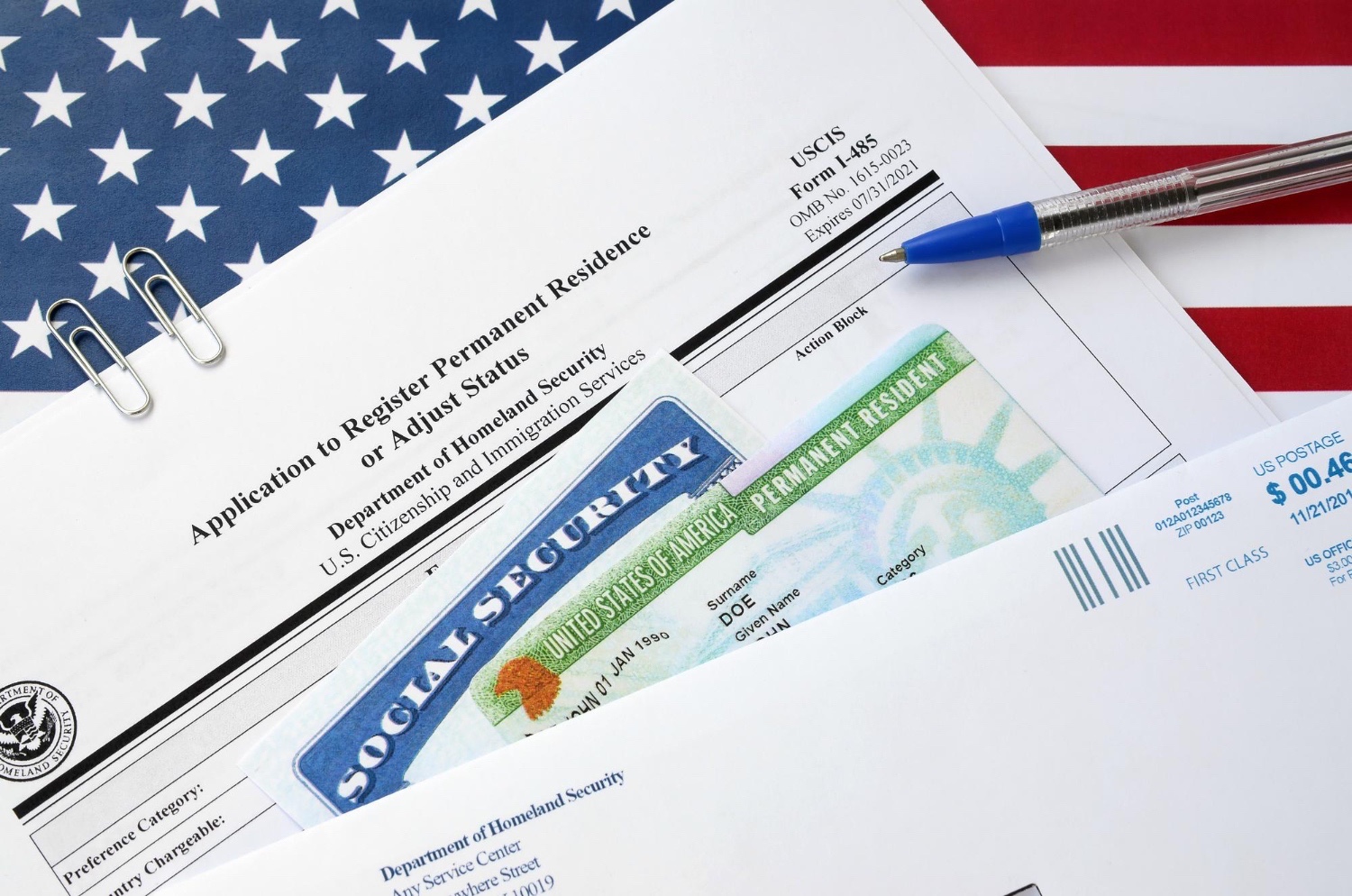The petitioning process for obtaining a Green Card for your son or daughter over 21 can be a complex and confusing endeavor. The immigration process for a family member, such as a child over 21, involves navigating complex immigration laws and often requires the assistance of immigration services.
Understanding the intricacies of United States immigration law and the role of immigration services, as well as the specific United States Citizenship and Immigration Service (USCIS) regulations, is crucial to ensure a smooth and successful application. In this comprehensive guide, we will explore the various steps and requirements involved in petitioning for a Green Card for your adult children, helping family members understand the immigration process and legal requirements, including key terms and concepts like “visa petition,” “preference category,” “priority date,” and more.

When it comes to petitioning for your son or daughter, defined under the immigration laws as children over 21 years old, whether married or not, U.S. citizens as well as permanent residents can file petitions for their adult unmarried children; only U.S. citizens, however, are able to file for married children. Thus, if a lawful permanent resident filed for their child and the child married prior to obtaining permanent residence, that child is knocked off the priority list and is no longer able to obtain residence through that alien relative petition.
This is different than the adult unmarried children over 21 who can be petitioned by both their U.S. citizen and lawful permanent resident relatives. All these categories are not within the immediate relative category, and therefore, they are placed on a waitlist before becoming eligible for lawful permanent residence in the United States. The child’s marital status and whether they are greater and less than 21 years of age at the time of filing determine which preference category they fall into for immigration purposes.
Whether a child who turns 21 while waiting for the alien relative petition to become current may maintain legally the category of minor child is complex and covered under another article. For purposes of this article, we will assume that the child is over 21 at the time of filing the petition.
The petitioning process starts with filing Form I-130, Petition for Alien Relative, with the USCIS. These petitions must be supported by required documents to demonstrate that the child is properly the child of a permanent resident or US citizen. This form establishes the relationship between the petitioner and the beneficiary and places the beneficiary in a specific preference category.
The child’s birth certificate is required. If the child is born out of wedlock, additional documents may be required. For such cases, evidence of the relationship between the parent and child, as well as the marriage certificates between the parents, if applicable, photographs, and other evidence of recognition prior to the child’s 18th birthday, are necessary to support the petition.
The preference categories are as follows:
Each preference category has a different number of visas allocated per year, which influences the waiting times for obtaining a Green Card.

Once Form I-130 has been filed, the beneficiary will be assigned a priority date, which essentially marks their place in line. The foreign national will not be able to apply for permanent residence until their priority date becomes current.
After filing, applicants will receive a receipt notice from USCIS, which includes a receipt number that can be used to track the status of the case. The filing date is also important for determining a child’s eligibility under the Child Status Protection Act (CSPA).
The wait times for each preference category can vary significantly, with some categories experiencing longer wait times than others. The waiting times can range from a few months to years, depending on the demand and annual visa limits for each category and the country of nationality of the beneficiary.
Once the petition is approved, USCIS will issue an approval notice confirming the approved petition. After approval, the case is either sent to the National Visa Center (NVC) for further processing at a US Consulate or remains with USCIS if the foreign national is eligible for adjustment of status.
Individuals are able to track priority dates by monitoring the USCIS Visa Bulletin, which provides monthly updates on what priority dates are current. Based on the current date, you can obtain an idea of how long the wait time will be.
If ultimately the foreign national wishes to adjust status in the United States, that individual must have entered the United States legally and must maintain status. For such cases, it is essential for the foreign national, if a permanent resident, and the beneficiary child to remain in legal immigration status while waiting for their priority date to become current if in the United States.
Under the current law, failure to maintain proper immigration status in the United States will foreclose the ability to adjust status in the United States. Thus, if the beneficiary is in the United States, they must have entered legally and be in legal status at the time their priority date becomes current in order to file a Form I-485 to adjust status from a non-immigrant or temporary visa to lawful permanent residency.
If they are not eligible to adjust status, they must pursue a permanent resident application through consular processing abroad. Be careful of this, as unlawful presence in the United States can result in a ground of inadmissibility upon a departure. Under such circumstances, it is best to speak to competent counsel before leaving the United States.
If, however, the beneficiary is outside the United States or has fallen out of status, they will need to apply for their Green Card at a U.S. Consulate abroad. It is important to evaluate eligibility for residence carefully, particularly for those in the US who have fallen out of status and wish to proceed overseas for their visas. Always speak to a qualified attorney before leaving the United States.
For those children under 18 years old who are in the United States illegally or have unlawful entry, they may be able to travel overseas and obtain residence at a U.S. Consulate abroad up to 179 days after their 18th birthday. This is because children under the age of 18 do not accrue unlawful presence in the United States and are not subject to a bar from returning if they obtain residence at a U.S. consulate overseas.
However, it’s essential to consider any additional grounds of inadmissibility before proceeding with this option. Some common grounds of inadmissibility include health-related issues, criminal activity, and prior immigration violations.
Violations of immigration laws can result in ineligibility for a visa or green card and may require review by an immigration court. Consulting an attorney is especially important if the beneficiary has had any issues with immigration law or has appeared in immigration court, as these factors can significantly impact eligibility under U.S. immigration laws. Again, before leaving the United States to obtain a visa, it is best to proceed with the process with a competent and qualified attorney.

When the priority date becomes current, the beneficiary considers two possibilities for obtaining their Green Card: adjustment of status or consular processing. Adjustment of status is the process of applying for a Green Card while the beneficiary is in the United States. Adjusting status allows the beneficiary to remain in the U.S. while their status application is processed by the USCIS service center. The United States Citizenship and Immigration Services (USCIS) oversees the adjustment of status process.
Applicants may apply for employment authorization and advance parole (a travel document) while their adjustment of status application is pending. Interviews and document submissions may take place at a local USCIS office.
Again, to be eligible for adjustment of status, the beneficiary must have entered the country legally and have maintained their legal status. This does not apply to immediate relatives who only have to have entered the United States legally – immediate relatives would be children of US citizens under 21 years.
Consular processing, on the other hand, is the process of applying for a Green Card through a U.S. Consulate in the beneficiary’s home country.
This option is available to beneficiaries who are either outside the United States or are ineligible for adjustment of status. For those foreign national family members who have been in the United States and plan to travel overseas to the US Consulate to obtain residence, it is very important to carefully evaluate grounds of inadmissibility to ensure that the individual will not be prohibited from reentering.
The Green Card petitioning process for children over 21, both those married and single, can be complex and time-consuming. It is crucial to understand the eligibility criteria, preference categories, and the importance of maintaining legal status throughout the process. Consulting with an experienced immigration attorney can provide valuable guidance and ensure that all requirements are met, increasing the chances of a successful outcome.
Additionally, an immigration attorney can help you navigate any potential issues or complications that may arise during the process, such as overcoming grounds of inadmissibility or addressing changes in your family situation (e.g., divorce, remarriage, or birth of additional children). Seeking professional help can save you time, money, and frustration in the long run.
The Green Card petitioning process for children over 21 and for married children requires careful planning, attention to detail, and patience. By understanding the eligibility criteria, preference categories, and maintaining legal status, you can increase the chances of a successful outcome for your loved ones.
While this article focuses on children, it’s also helpful to know that the process for sponsoring a sibling for a Green Card follows a different path with its own unique requirements.
Don’t hesitate to seek professional guidance from an experienced immigration attorney to help navigate the complexities of the United States Citizenship and Immigration Service regulations and ensure a smooth and successful application.
